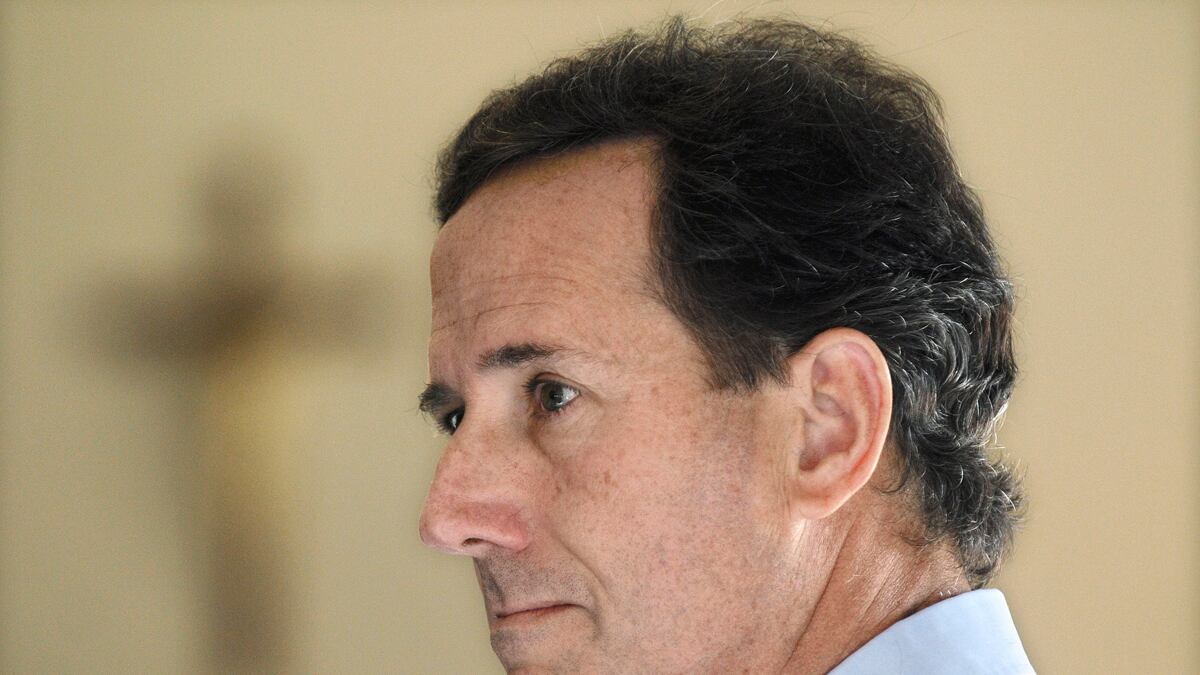Rick Santorum’s militant Catholicism brings to mind an old Yiddish proverb: “A fool can throw a stone in the water that takes 10 wise men to retrieve.”

There they were, our very own wise men—pundits, scholars, and think-tankers—trooping onto the news and talk shows to debate Santorum’s declaration, delivered in the idiom of a teenage girl, that John F. Kennedy’s famous 1960 speech on the separation of church and state made him “throw up.” Not once in the 236 years since the founding of the American republic has the separation of church and state been an issue. Yet we are arguing about it now, for the very first time, all because the rabble-rousing charlatan from Pennsylvania is desperately pandering to the small minority of Americans that make up today’s radical right.
No one should be surprised by Santorum’s belligerent version of Catholicism. It is as old as the church itself, which gave the world Saint Francis as well as Torquemada. Latin Americans, whose bloody juntas were both supported by the church and heroically opposed by Catholic clerics, know all about Catholicism’s Janus face.
No one should be surprised by Santorum’s seeming popularity, either. Every generation, it seems, America experiences an antimodern spasm from the Catholic right: Father Coughlin in the '30s, Joe McCarthy in the '50s, Pat Buchanan in the '90s. The Supreme Court in now packed with three Catholic justices possessed of a medieval cast of mind: Scalia, Roberts, and Alito. With its ancient history and its parallel world of symbols and sacraments, Catholicism is better equipped than any religion in America to offer an escape from the evils of modernity. It is a consistent countermotion to the constantly accelerating modes of American gratification.
The narrow tribalism of Catholicism is precisely what is so strange, and so illuminating, about Santorum’s latest strategy. He is using Catholicism to appeal to Protestants for whom the Catholic Church has always been anathema. The irony of his remark about JFK’s speech is that he is pitching this attack on Kennedy’s commitment to the separation of church and state to evangelical Protestants—when Kennedy’s address was meant to reassure Protestants that he, as a Catholic president, would not allow Rome to influence his political decisions.
Protestantism, after all, is the child of the modernity Santorum claims to despise. It was the Protestant Reformation that rebelled against Catholicism’s thralldom to the Vicar of Christ in Rome, to the closed system of rituals that makes Catholicism the kind of total alternative universe that is so suited to antimodern assaults on secular American life. Why any evangelical Protestant would be inspired or reassured by Santorum’s avowals of fealty to Rome is hard to fathom.
But perhaps the very fact of Santorum’s strident religious statements means that organized religion in this country is on its last legs. Whenever original experiences begin to weaken, they are replaced with inflated, hyperexaggarated versions of themselves before they disappear. Santorum’s absurd claim that religion should influence public policy actually reflects the reality that religion plays less and less of a role in our national public life.
Indeed, in his ahistorical, puerile belief that one version of Christianity is as good as another, Santorum is the product of the very relativism that he abhors and condemns. He is a shallow caricature of a militant Catholic. He is not practicing religion but religionism. In the absolutely crazy context Santorum has instantly created, whoever first casts this unholy fool’s stone back at him—instead of senselessly debating it—is the true Christian.




